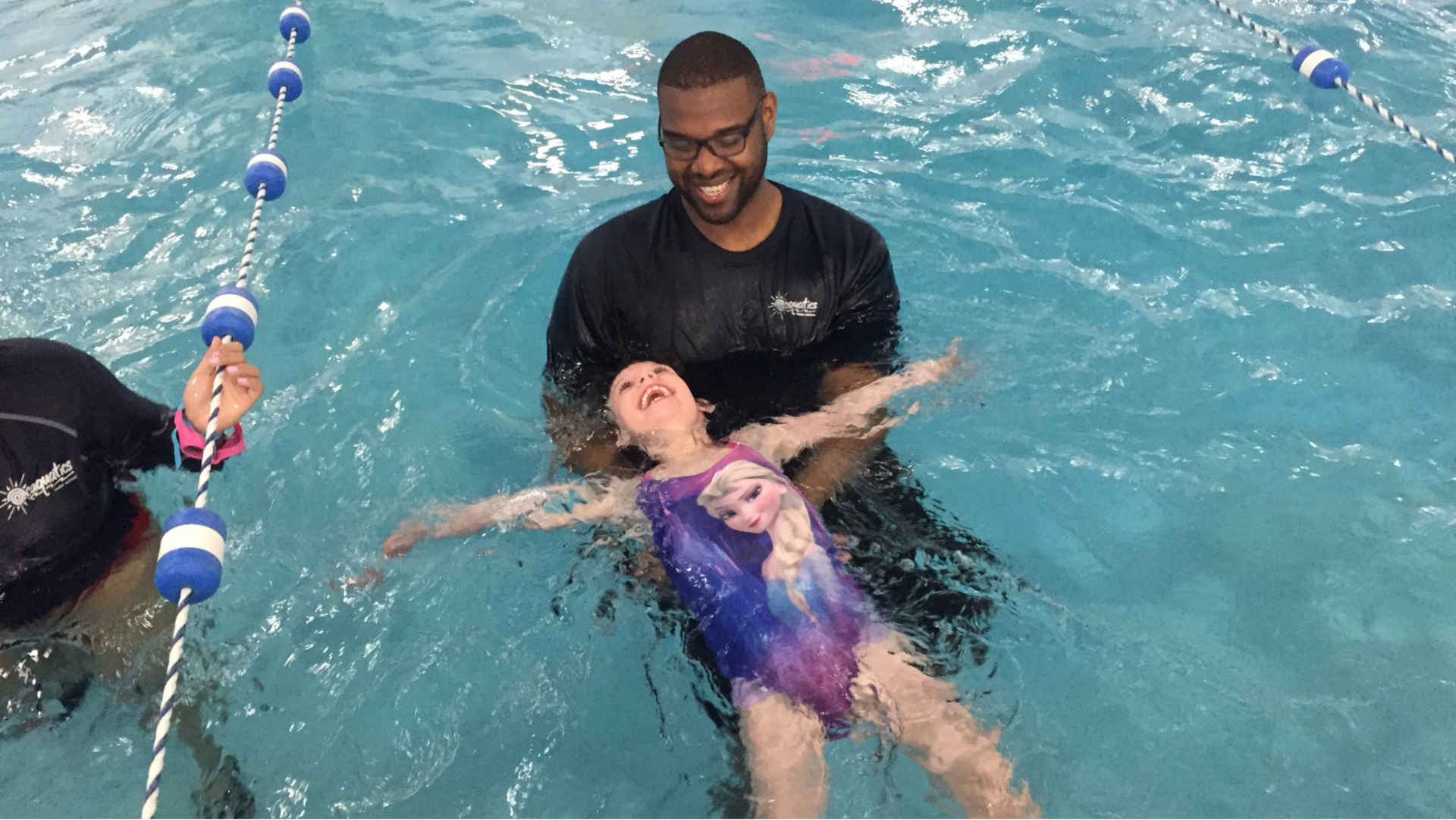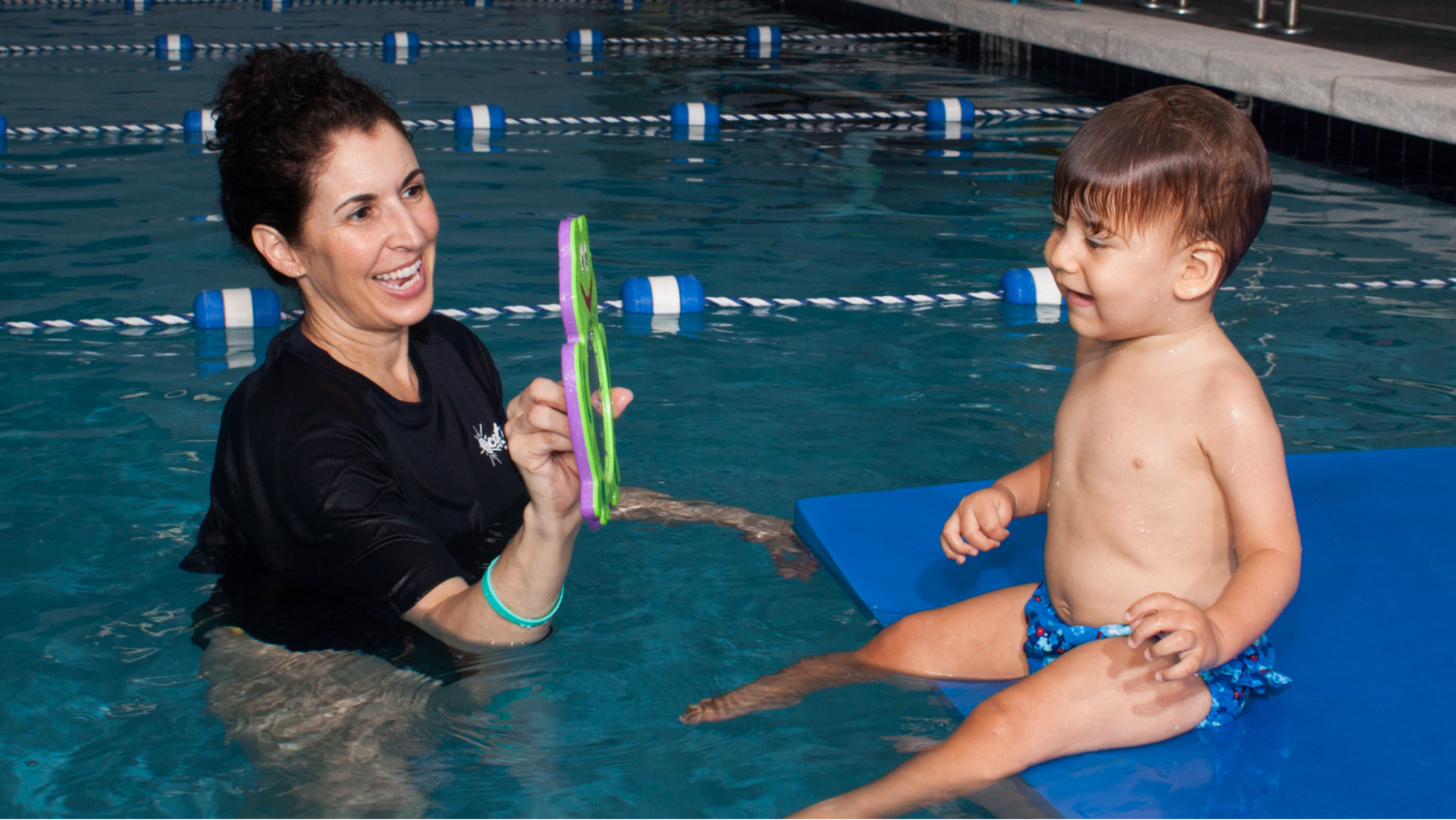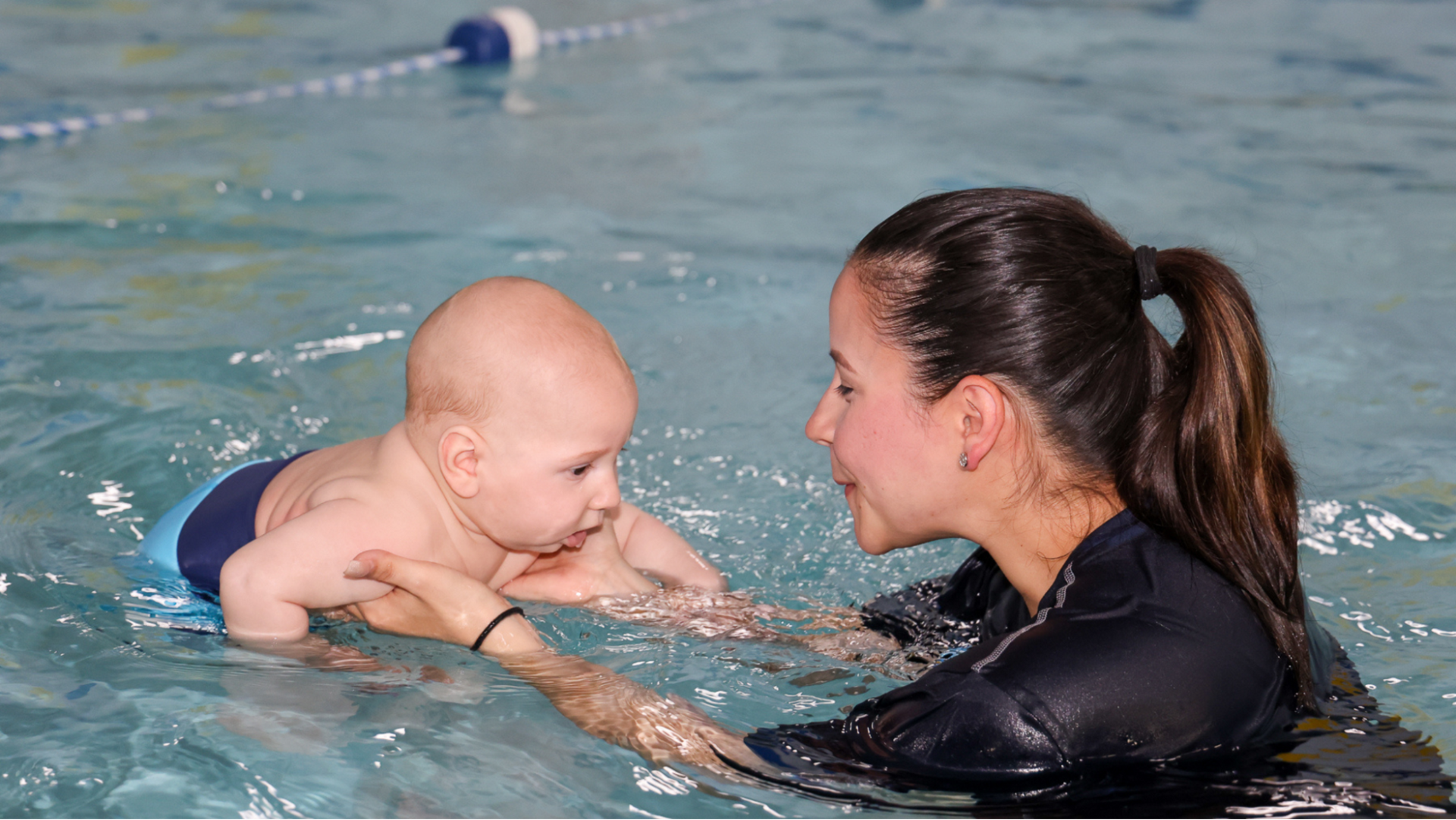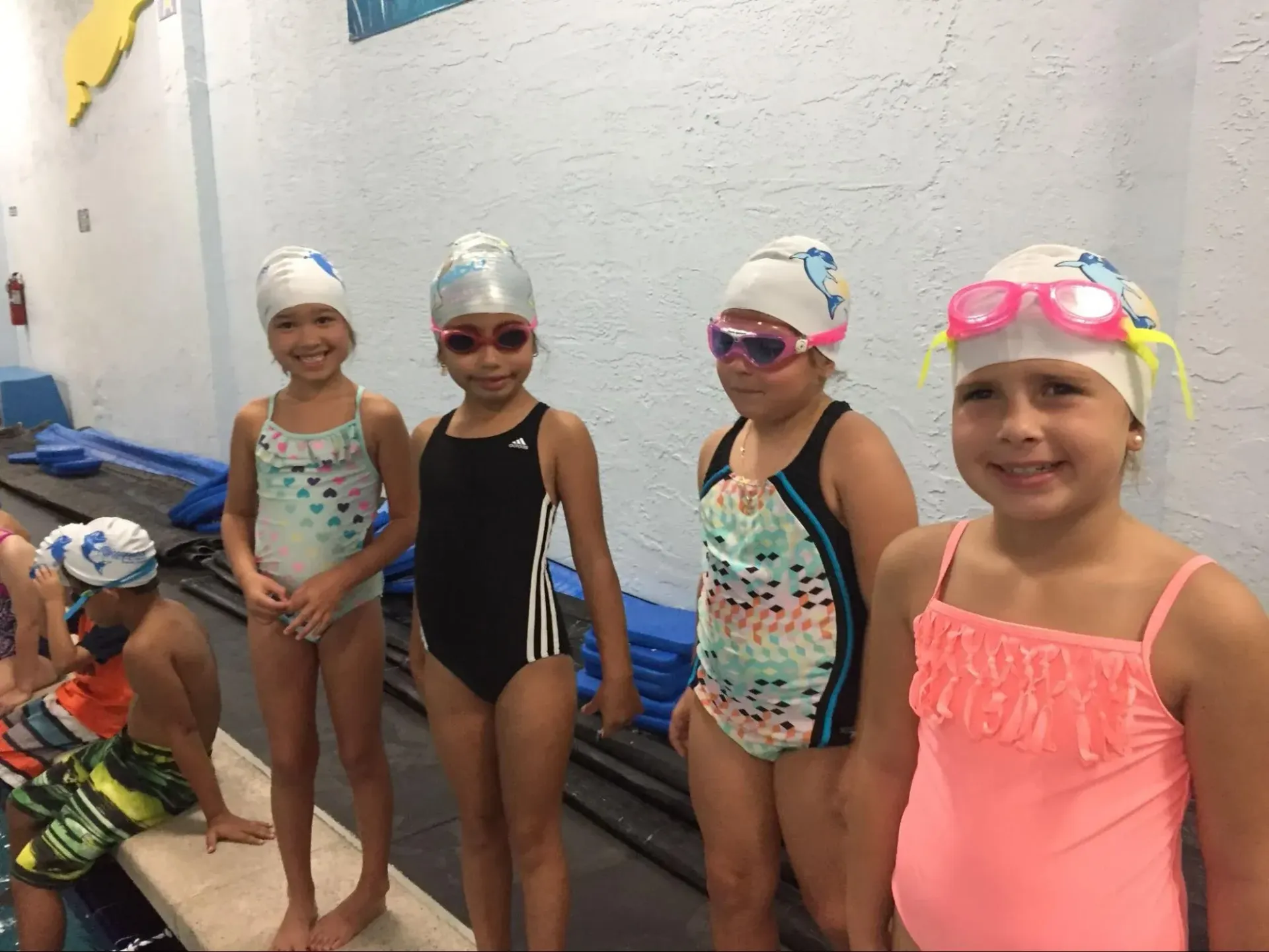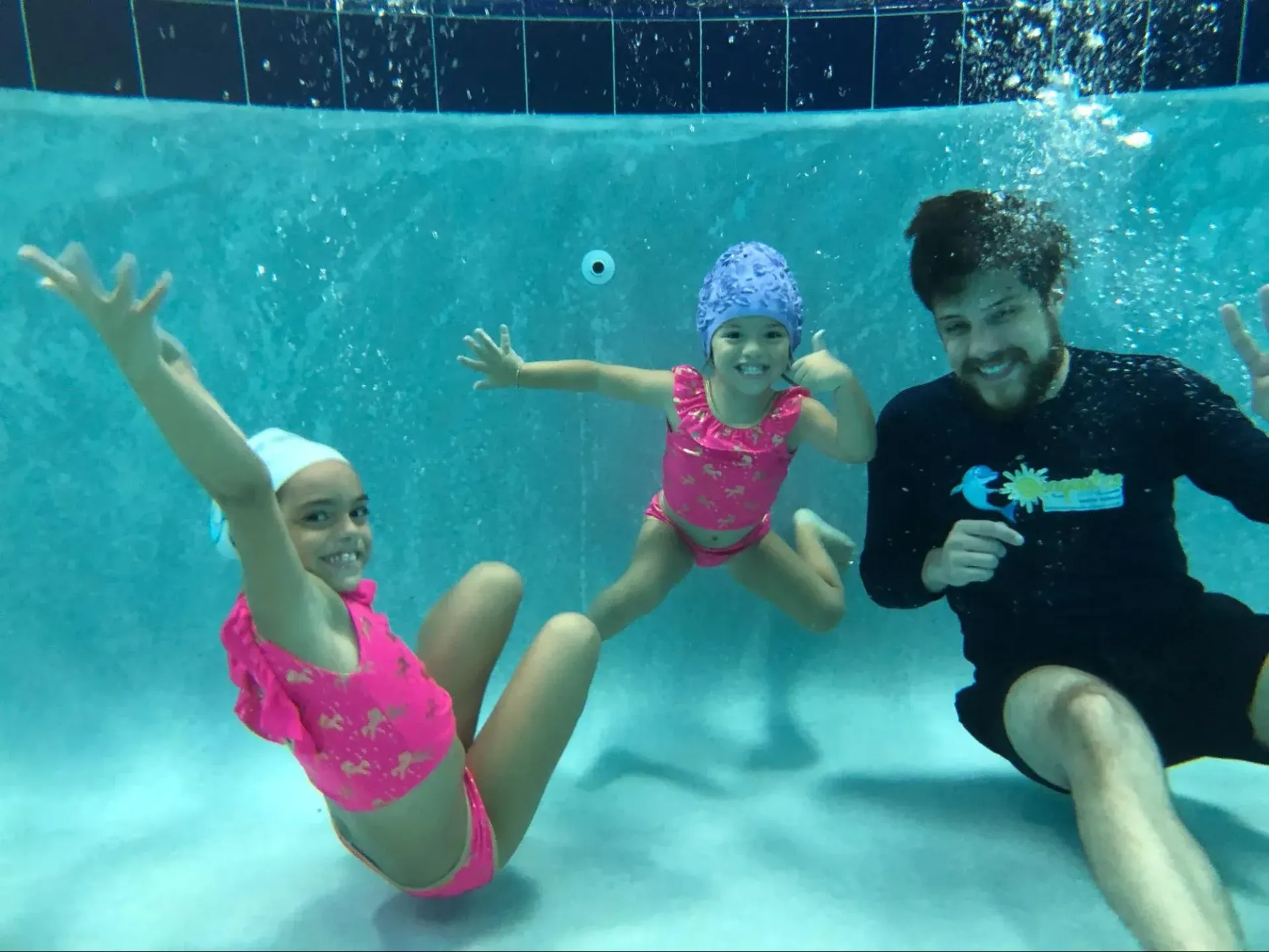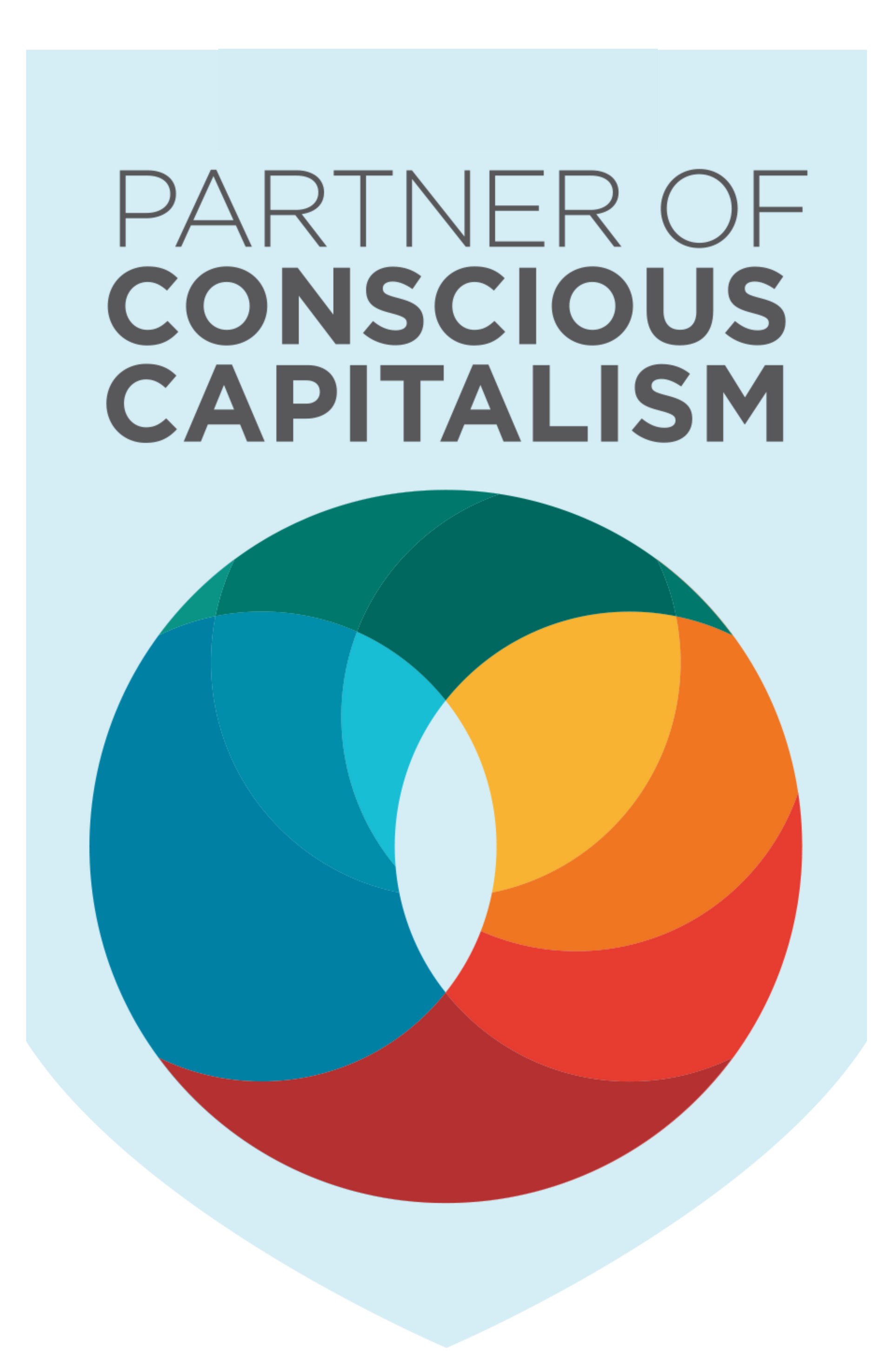Swimming Lessons for Kids: Key Benefits of Starting Before Age 5
Imagine your three-year-old splashing confidently in the pool while other kids their age are still clinging to pool noodles. That's not luck – that's the power of starting swim lessons early.
Florida residents are blessed with year-round pool weather and beach access. But with that blessing comes responsibility. Every year, we hear heartbreaking stories about water accidents involving young children. Meanwhile, many parents wrestle with the same questions: Is my toddler too young for swimming lessons? Will they be scared? Are early swim lessons really worth it?
If you're on the fence about enrolling your little one in swimming lessons before they turn five, you're not alone. Many parents wonder if their child is ready, worry about safety, or question whether starting this early actually makes a difference.
Here's what you'll discover in this post: the specific developmental advantages your child gains from early swim lessons, how starting before age five creates lasting water safety habits, and why those crucial early years are the perfect window for building swimming skills. By the end, you'll understand exactly why early childhood swimming benefits extend far beyond just learning to float.
Why Age Matters: The Science Behind Early Swim
Lessons for Kids
Young children's brains are like sponges, especially between the ages of two and five. This isn't just a cute saying – it's backed by neuroscience. During these years, your child's brain forms neural pathways at lightning speed, making it the ideal time for learning complex motor skills like swimming.
When you introduce kids to swimming early, they don't overthink the movements. A four-year-old doesn't analyze how to coordinate their arms and legs – they just do it. This natural learning ability means teaching toddlers to swim often happens faster and with less fear than waiting until they're older.
Think about it: most kids are around water constantly. Whether it's backyard pools, community centers, or beach trips, water is part of our lifestyle. Starting swim lessons early means your child develops comfort and safety skills before they encounter potentially dangerous water situations on their own.
Research shows that children who begin swimming lessons before age five demonstrate better balance, coordination, and spatial awareness than their non-swimming peers. These skills don't just help in the pool – they carry over to playground activities, sports, and even academic tasks requiring focus and body control.
Swimming Skills for Toddlers: What They Can Actually
Learn
You might be surprised by what toddlers can accomplish in the water. Beginner swim lessons for toddlers focus on fundamental skills that build upon each other naturally.
Most two and three-year-olds can learn to hold their breath, float on their backs with minimal assistance, and kick their legs purposefully. By age four, many children can perform basic strokes, jump into the pool independently, and swim short distances without flotation devices.
The key is age-appropriate instruction. Quality programs for kids' swim lessons under 5 don't rush children or expect adult-level technique. Instead, they use games, songs, and playful activities to teach water safety and basic swimming skills.
At this age, lessons typically last 30 minutes or less. Toddlers have short attention spans, so effective instructors keep activities moving, incorporate play, and celebrate small victories. This positive approach helps children associate swimming with fun rather than fear.
Don't expect your toddler to master the butterfly stroke, but do expect them to develop water confidence, basic safety skills, and the foundation for more advanced techniques later.
Benefits of Swim Lessons Before Age 5: Beyond Water
Safety
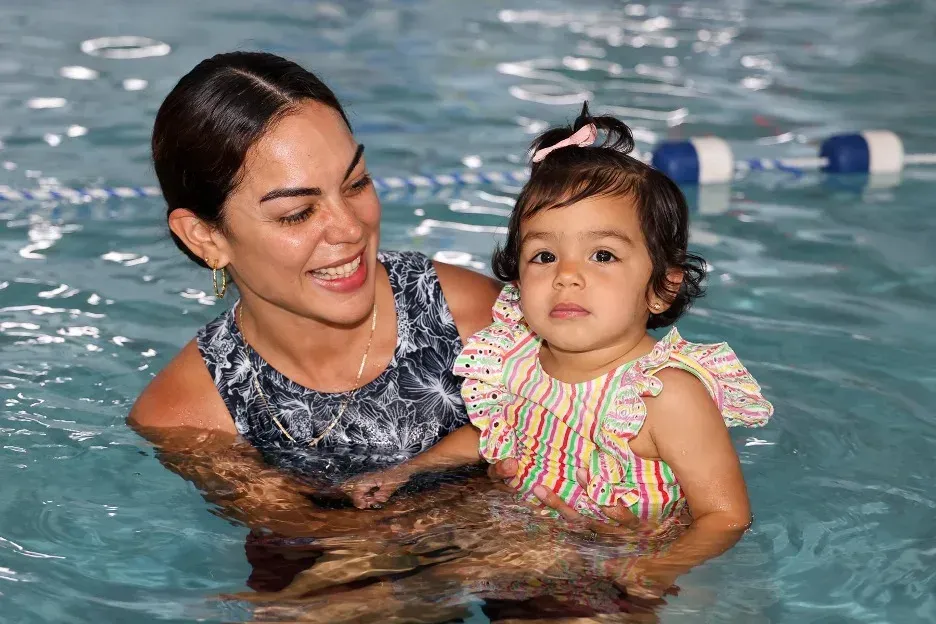
Water safety for toddlers is obviously crucial, but the advantages of starting swim lessons early extend far beyond preventing drowning. These lessons offer a unique combination of physical, cognitive, and emotional benefits.
Physically, swimming engages nearly every muscle group. Toddlers who swim regularly develop stronger core muscles, better posture, and improved cardiovascular health. The resistance of water provides gentle strength training that's perfect for growing bodies. Plus, swimming is low-impact, reducing injury risk compared to other physical activities.
Cognitively, following swimming instructions enhances listening skills and memory. Children must remember sequences ("kick, then move your arms"), follow directions from instructors, and solve problems ("How do I get from this side of the pool to that side?"). These mental exercises strengthen neural pathways crucial for academic success.
Emotionally, mastering swimming skills builds tremendous confidence. There's something magical about watching a shy child transform into a confident swimmer. This self-assurance often transfers to other areas of life, making children more willing to try new activities and face challenges.
The social aspect shouldn't be overlooked either. Group lessons teach children to share attention from instructors, cheer for classmates, and participate in group activities – all valuable social skills they'll use throughout childhood.
Preschool Swimming Benefits: Setting Up Academic
Success
Here's something many parents don't realize: swimming lessons can actually boost your child's readiness for school. The connection might not be obvious, but the skills developed in the pool translate directly to classroom success.
Swimming requires bilateral coordination, using both sides of the body together in complex patterns. This type of movement strengthens the connection between brain hemispheres, which is essential for reading, writing, and mathematical thinking. Children who swim often show improved pattern recognition and sequencing skills.
The discipline required for swimming lessons also prepares kids for structured learning environments. They learn to wait for their turn, listen to instructions, and practice skills repeatedly to improve – all crucial classroom behaviors.
Many Miami preschools actually incorporate swimming into their curriculum because educators recognize these developmental advantages. Children who've been swimming since toddlerhood often adapt more easily to school routines and show greater physical confidence during playground activities.
Age to Start Swim Lessons: Timing Your Child's First
Splash
Most swim experts agree that formal lessons can begin as early as 18 months, though the approach varies significantly by age. Here's what to expect at different developmental stages.
Eighteen months to two years old: Parent-child classes focus on water familiarity, basic safety positions, and following simple instructions. These sessions are more about comfort than technique.
Two to three years old: Children can begin independent lessons with instructors trained in toddler development. Emphasis remains on safety and fun, with basic floating and kicking skills introduced through games.
Three to four years old: This is often the sweet spot for beginning formal swim instruction. Children have better attention spans, can follow multi-step instructions, and are developmentally ready for more structured learning.
Four to five years old: Kids this age can handle longer lessons and more complex skills. They're often ready to learn basic strokes and may begin swimming short distances independently.
Remember, every child develops differently. Some two-year-olds are ready for independent lessons, while some four-year-olds still benefit from parent participation. The best programs assess each child individually rather than using rigid age cutoffs.
Swimming for Kids Developmental Advantages
Living in South Florida gives us unique advantages when it comes to introducing kids to swimming early. Our warm climate means year-round pool access, making it easier to maintain consistent lesson schedules.
But this constant water exposure also means children need swimming skills earlier than kids in other climates. Backyard pools, community centers, and beach trips are part of regular life here, not just vacation activities. Starting swim lessons early gives your child the safety skills they need for our water-rich environment.
Florida's diverse population also means access to swimming instructors from various cultural backgrounds, many of whom bring different teaching approaches and perspectives. This diversity can be particularly helpful for children who might connect better with instructors who share their cultural background or speak their family's native language.
The city's emphasis on year-round outdoor activities makes swimming a practical life skill, not just a recreational activity. Children who master swimming early often transition naturally into other water sports popular in South Florida, from surfing to sailing to competitive swimming.
Introducing Kids to Swimming Early: Overcoming
Common Fears
Fear is the biggest barrier preventing parents from enrolling their young children in swim lessons. Let's address these concerns directly with practical solutions.
"My child is afraid of water." This is completely normal and manageable with the right approach. Quality instructors specializing in young children know how to gradually introduce water activities, starting with games that barely get kids wet and slowly building comfort. Most water fears in toddlers resolve within a few lessons when handled properly.
"They're too young to understand safety rules." Actually, toddlers are excellent at following clear, simple safety rules when they're presented consistently. Rules like "wait for permission before entering the water" or "hold the wall when you're tired" become automatic with practice.
"What if they have a bad experience?" This is where instructor selection matters enormously. Experienced toddler swim instructors know how to read children's emotional states and adjust activities accordingly. They never force participation and always end lessons on a positive note.
"I'm worried about drowning." Proper supervision and age-appropriate instruction actually reduce drowning risk significantly. Early swim lessons teach children to respect water while building confidence and survival skills.
Making the Right Choice: Your Child's Swimming
Journey Starts Now
Starting swimming lessons before age five isn't just about creating a future Olympic swimmer; it's about giving your child tools they'll use throughout life. The confidence, physical skills, and safety awareness they develop will serve them whether they become competitive athletes or simply enjoy recreational swimming.
For South Florida families, early swim lessons are particularly valuable given our year-round water access and beach culture. Children who start swimming young become confident in various water environments, from backyard pools to ocean waves.
At Ocaquatics, we've seen thousands of children transform from cautious toddlers into confident young swimmers. Our instructors understand that every child develops at their own pace, and we tailor lessons to meet each child where they are developmentally.
Ready to give your child the gift of water confidence and safety? Contact Ocaquatics today to schedule a tour of our facilities and learn more about our toddler and preschool swimming programs. Your child's swimming journey – and all the benefits that come with it – can start this week.





